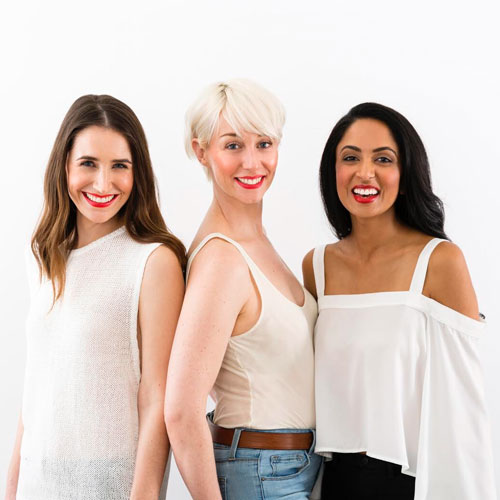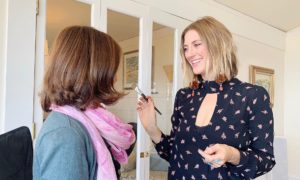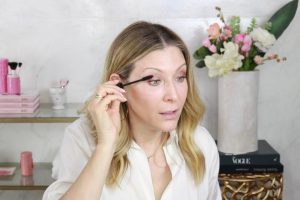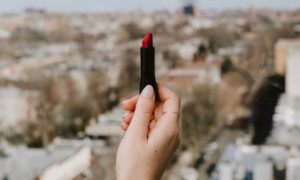Most recently updated 1/12/21
Over the last decade, parabens have become a real hot button issue in the cosmetics industry. You’ve probably noticed a lot more “paraben-free” labels on your favorite beauty products, and that may give you greater peace of mind. But even after all this time, most of us aren’t totally sure what parabens are, how they affect our health, and if we really need to avoid them. In this article, we’re sharing all you need to know about parabens to make more informed decisions for yourself moving forward.
What are parabens?
Parabens (pronounced para-bins) are a group of chemicals used as preservatives in products like makeup and food. They help prevent products from going moldy or growing bacteria, just like other types of preservatives do.
Preservatives are, of course, a good thing, but…
How do parabens affect our health?
Some experiments have shown parabens to be estrogen receptor binders [1], which means they may disrupt our endocrine systems and create adverse reproductive, metabolic, and developmental outcomes. Some scientists think they might contribute to cancer and other problems like compromised fertility [2], developmental issues [3], and modified birth outcomes [4].
People originally got concerned about parabens after a 2004 study was published in which researchers shared they’d found parabens in cancer patients’ breast tissue. While the presence of parabens in breast tissue alone doesn’t mean that the compounds actually caused the cancer, the study suggested that more research is needed to determine whether parabens are safe for use as contrary to prior thought, some can accumulate in the body.
Although some research has been conducted since, scientists are still learning precisely how exactly parabens interact with the human body. We’ll keep you updated with the latest as research comes out!
How do I get exposed and how much exposure is harmful?
Parabens are used in all kinds of cosmetics and personal care products, which means we’re exposed through skin absorption (when we topically apply products), ingestion (in trace amounts), and inhalation.
The truth is, like with conventional fruits and vegetables sprayed with pesticides, no one knows exactly how much exposure might trigger a negative health impact. But we do know that some parabens can accumulate in our bodies [5], along with other known and suspected toxins, and contribute to what’s called our “body burden” – or the total load of toxins in our bodies. Reducing our exposure to parabens and other known or suspected toxins in cosmetics and personal care products can decrease our overall exposure to toxic chemicals.
Also, some people are particularly sensitive to additives and chemicals or have pre-existing endocrine disruption that could make them more vulnerable to the chronic effects of paraben exposure.
Should I avoid parabens?
Many women prefer the peace of mind that comes with using makeup and personal care products formulated without parabens. Research shows that your body registers any changes very quickly: reducing personal care products with toxins lowers levels of chemicals in the body, including some parabens, in a few short days [6].
How can I tell if a product is formulated without parabens?
Many products that formulated without parabens will say so on the packaging. To double check, read the ingredients list. Any word ending in “-paraben” is a paraben.
Doesn’t the FDA regulate parabens and other known or suspected toxins?
Despite the potential risks associated with certain compounds including parabens, the U.S. Food and Drug Administration has only restricted a short list of 30 other problematic ingredients. No parabens are included [7].
On the other hand, the European Union has banned the use of over 1,300 known or suspected toxins from use in cosmetics, including five different paraben compounds [8].
NakedPoppy bottom line: we avoid parabens
To play it on the safe side, we like to use products formulated without parabens and want to make it easier for you do the same. That’s why NakedPoppy products are formulated without parabens, using other preservatives that perform well without posing risks to your health.
Get “shockingly accurate” clean beauty picks. Take your beauty assessment.
This article has been reviewed by two scientists: Tim McCraw, PhD chemist and CEO of Skin Science Advisors, and Ilene Ruhoy, M.D., neurologist and PhD in Environmental Toxicology.
What are your thoughts on parabens? We’d love to hear your perspective in the comment section below.
References
[1] Some studies have shown parabens to be estrogen receptor binders:
https://www.ncbi.nlm.nih.gov/pubmed/25128701
https://www.ncbi.nlm.nih.gov/pubmed/25047802
[2] Contribute to compromised fertility:
https://www.ncbi.nlm.nih.gov/pubmed/27286252
[3] Contribute to developmental issues:
https://www.ncbi.nlm.nih.gov/pubmed/27810681
[4] Contribute to modified birth outcomes:
https://www.ncbi.nlm.nih.gov/pubmed/26654974
[5] Can accumulate in our bodies:
https://www.ncbi.nlm.nih.gov/pubmed/25749637
[6] Reducing products personal care products with toxins lowers levels of chemicals in the body, including some parabens, in a few short days:
https://www.ncbi.nlm.nih.gov/pubmed/18194284
[7] FDA has banned or restricted use of 11 ingredients. No parabens are included:
https://www.fda.gov/Cosmetics/ProductsIngredients/Ingredients/ucm128042.htm
[8] E.U. banned five paraben compounds:
http://europa.eu/rapid/press-release_IP-14-1051_en.htm






Comments